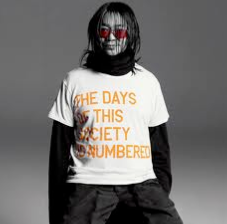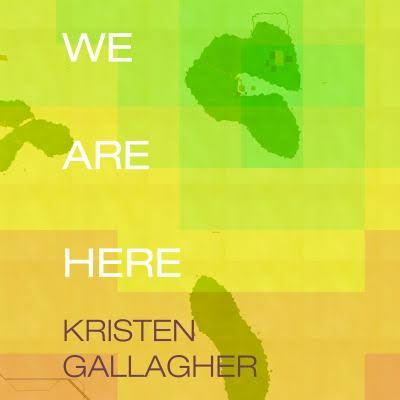commerce fades." (Jerry Saltz)
This happened by the way
during Chris & Kristen’s
visit here for a reading @
the Institute of Loafing
I think Kristen
was downstairs
at the time
working on
her performance
in the den
in from Queens
to the woody suburb
of South Eugene
known as a hippy town
even now, at the curb of
yet another new year
"It’s soooo mellow,"
the customer said
at Jiffy Mart, upon her
return from Seattle
actually, it’s Jiffy
Market
to be precise
just twenty minutes
from midtown
they are, via
the M train
takes us ten
by car here
one by one
privately public
we slowly go
with me, the host,
getting sick
six times sick
all in all
starting at two
of noon that day
with finally
the last barf—
"barf " here
in honor of
Dodie Bellamy
and Eileen Myles
B’s Barf Manifesto
and M’s barfing poem
the latter
from Sorry, Tree—
probably in the middle
of their performance
around 7:45 or 8
for the record—
a viral thing
going around
or was it the food
in the E. coli?
The night before
we had celebrated
Kristen’s birthday @
Marché’s downtown
starting with oysters
from Willapa Bay
Washington,
the cleanest estuary
in the continental
USA
deciding to share
our dishes
for the main course
consisting of crab
cakes, mussels, and black
cod, respectively, with a
local Pinot Gris
from our own
Willamette valley
being locavores
round here, yet spending
like carnivores.
Earlier, that same day,
the day before
the vomiting/reading day—
yet they not sick
somehow—
I told Chris of Rirkrit
Tiravanija’s show at 303
titled "Untitled, 1992 (Free)"
wherein Rirkrit
took all the stuff
in the gallery’s office
& storage space,
both of which were small
as the gallery space
itself,
and placed it in the gallery
space, so that
when the elevator doors
which opened directly into
the gallery space
opened
you were confronted
with all this stuff
piled high
in boxes, wooden
crates and such
in makeshift rows,
placing one off-
guard, at first—
am I in the wrong place
oh, there’re people
back there
in the emptied out
office area
mingling, drinking
wine or beer
and eating Thai curry
Rirkrit was cooking
from cans and spices
on a propane burner
happily dishing it up
and smiling
the whole time.

Flat language, vernacular, repetitive – how it can’t help
but be figurative, help but pop up.
The repetitive sense
of being lost, but together-alone.
The landscape behind words
when words are not descriptive.
Sometimes we are clued in to where a poem takes place
but apart from Central Park, we as readers don’t know
where we are or wear what?
Even the maps don’t ground us
as they’re as much from other zones
as those present in the prose.
Occasionally we get street names, other times
it’s just numbers, or colors on maps.
The blandness of the text and its repetitions
make this a conceptual poem, yet the text
when read through does yield some pleasures
like "there might be hippos."
Chris talking about how some of Goldsmith’s work is readable, like those weather
reports, while Day’s just something to look at,
something to place on the table,
stack on shelf
(i.e. all’s not unreadable).
The other aspect is the negotiation
back and forth between passengers
with the occasional bystander helping out,
hailed through car window,
most though ignoring
their queries, atomized pedestrians
turning away.
The here in We Are Here
is absent
history—yet somehow the words
capture the moment.
Restlessly moving from place
i(close to home) to place
looking for locations and back
(looking for beauty?) again.
The title can be read as an attempt
to persuade us of our presence
in history in time
in its place:
We are here! damn it!
Between words
in the telling
unfolding—
"We’ll figure it out right?"
The dependence on others
for directions, which
turn out to be unreliable—like
GPS, a primitive tool.
Words: here, there, that—
enough.
"oh so you think this is here"
The future presently
too slow
to bother
happening—
already over,
what’s next
being
for worse
or where?
The text works
through its repetition and its duration
as specific it gets.
"unanchored behaviors" (the book is un-paginated, hence un-citable, numerically)
At first you think, Okay, I get this, but do I have to read every poem, every word?
The flat prose adds to this reluctance—the project seems so lite as to risk insignificance—
what’s the point?—yet, as one reads on, the charm of the piece bleeds through, sinks in,
the sense of joining in on these walks, talking as one walks
and letting the words do
the reading too.
And, then, out of nowhere, the worldly creeps in:
"It’s really beautiful here – yeah, this would be a great place for a Halliburton
fracking project" ("so are we still")—
"I’m thinking of a hills have eyes situation" ("all right now").
Verbal transcriptions, taped then typed then printed, instead of writing-writing
or cut & paste antics.
Note that even GPS requires negotiation: the Shuttle driver, for instance, following
Siri’s instructions to Mom & Dad’s, here in Fort Collins where I’m reading this,
and my having to correct him, no, this is the street,
turn here, not there.
Note too the commentary in places, the break with procedure:
"so it’s just walmart world at this point" ("OK 77 North").
Conversational language like "I agree that would suck" ("it’s so weird").
Occasional slapstick ("what did she say").
Lack of street names, except #s & the occasional exception
like "achievement drive" ("there is no street").
"and we needed no technology—
except the car – ok, true" ("ok we’re on the right road").

